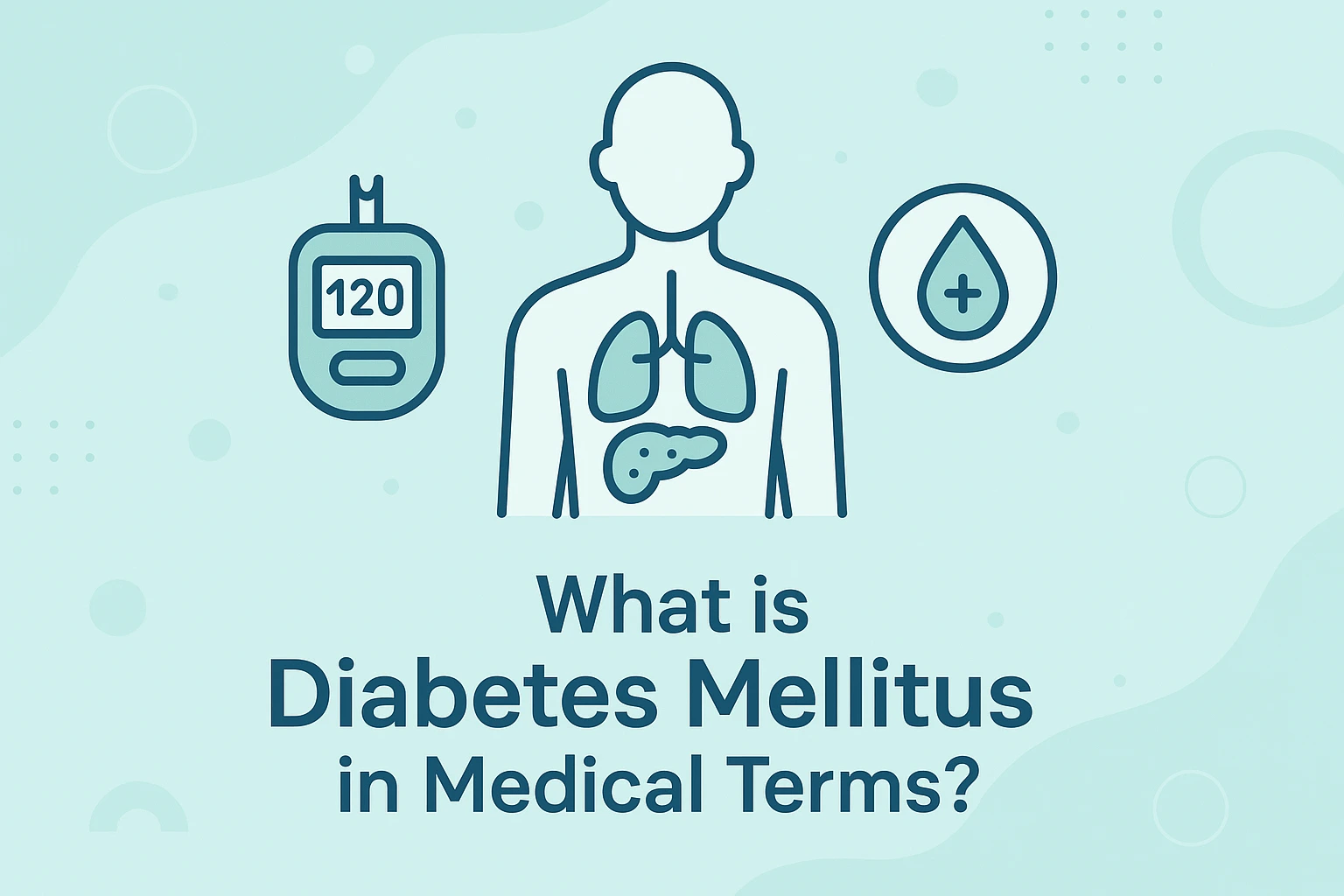Diabetes Mellitus, commonly referred to simply as diabetes, is a group of chronic diseases that affect the body’s ability to regulate blood sugar (glucose) levels. Normally, the hormone insulin helps regulate glucose in the blood, but in diabetes, the body either doesn’t produce enough insulin or cannot use it effectively. This leads to elevated blood sugar levels, which over time can cause serious health complications, including heart disease, kidney damage, nerve damage, and vision loss.
If you experience symptoms such as extreme thirst, frequent urination, unexplained weight loss, or blurred vision, it’s essential to seek medical evaluation for possible diabetes diagnosis and treatment.

Types of Diabetes Mellitus:
-
Type 1 Diabetes: An autoimmune condition where the body’s immune system attacks and destroys the insulin-producing beta cells in the pancreas. This type usually develops in childhood or adolescence and requires insulin therapy for life.
-
Type 2 Diabetes: The most common form of diabetes, where the body becomes resistant to insulin or doesn’t produce enough. It is often linked to lifestyle factors such as obesity, physical inactivity, and poor diet. Type 2 diabetes can be managed with lifestyle changes, medication, and sometimes insulin.
-
Gestational Diabetes: A temporary form of diabetes that occurs during pregnancy. It affects how the body processes glucose and typically resolves after childbirth. However, women who have gestational diabetes are at a higher risk of developing Type 2 diabetes later in life.
-
Other Specific Types: This includes rare forms of diabetes due to genetic mutations, diseases affecting the pancreas, or other health conditions.
Symptoms of Diabetes Mellitus
Symptoms of diabetes mellitus include: various signs that can indicate the condition.
- Increased thirst
- Frequent urination
- Fatigue
- Blurred vision
- Slow-healing wounds
- Unexplained weight loss
Causes of Diabetes Mellitus
Common causes and risk factors for diabetes mellitus include: various factors that can lead to this condition.
- Genetic predisposition
- Obesity
- Lack of physical activity
- Unhealthy diet
- Hormonal changes
When to See a Doctor Diabetes Mellitus?
Seek medical advice for possible diabetes mellitus if: you have significant symptoms like persistent thirst or fatigue. Immediate attention is necessary for fainting, chest pain, or confusion.
Related Terms of Diabetes Mellitus
FAQs for Diabetes Mellitus
When should I go to the ER for diabetes mellitus?
Seek emergency care if you experience fainting, chest pain, or confusion.
How does heat affect diabetes mellitus?
Extreme heat can lead to dehydration, which may worsen symptoms; stay hydrated, especially during long-haul flights.
What are some ways to reduce the risk of diabetes mellitus?
Maintaining a healthy weight and engaging in regular physical activity can help lower risk.
